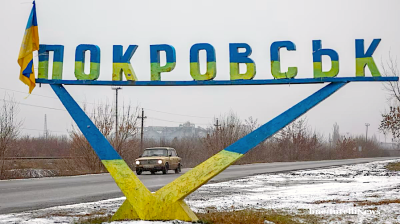The Albanian parliament failed to elect a new president as no candidates were nominated in the first round of voting on April 19.
The lack of candidates came as no surprise because the ruling majority was not expected to name anyone, in an attempt to reach a deal with the opposition Democratic Party on a consensus candidate. However, opposition MPs have been boycotting the parliament since February, demanding the appointment of a caretaker government to prepare for an early general election in June.
The mandate of the current president, Bujar Nishani, who came from the ranks of the Democratic Party, expires this year.
Albania elects the president by a majority vote in the parliament. Nishani was voted in with a majority of 73 votes out of 140 in 2012.
Presidential candidates are proposed by a group of at least 20 MPs. Albania's parliament elects the president in five rounds. In the first three rounds, the winner must secure at least 84 votes.
“We hope to find consensus on the candidate. We will wait to find the right president who will be accepted by everybody,” Rama told journalists outside the parliament following the session, according to a government statement.
The prime minister stressed he would continue to be “patient until the limit of patience”. Better to wait for the right president accepted by everybody than to appoint a president without the opposition, he added.
Rama’s government has also appealed to the centre-right European People’s Party, of which the local Democratic Party is a member, to mediate in the ongoing political crisis.
If the Democrats go ahead with their boycott of the election, this would seriously undermine the legitimacy of the vote. No party has boycotted an election since the Socialists withdrew part-way through election day back in 1996, citing irregularities.
However on April 19, the Democrats signalled they were standing by their plans to boycott the upcoming parliamentary election. The party issued a statement criticising the Socialists and their junior coalition partner the Socialist Movement for Integration (LSI) for attempting to have the deadline for registration rolled back. The Democrats insist that the original deadline – which has already passed – must be adhered to, which means it is already too late for the party to participate in the election.
News

Russia test fires its Burevestnik nuclear-powered cruise missile
Russia’s Burevestnik nuclear-powered cruise missile has no analogues in the world, Russian President Vladimir Putin said, as the Kremlin escalates the unfolding missile arms race with Ukraine another notch.

Russia claims to surround Pokrovsk
Russia’s chief of the general staff Valery Gerasimov triumphantly reported to Putin that 31 Ukrainian battalions have been encircled in Pokrovsk and 18 battalions in Kupyansk, the hottest spot in the war.
.jpg)
Brazil and US to start urgent tariff negotiations after Trump-Lula meeting
Brazilian President Luiz Inácio Lula da Silva and US President Donald Trump have agreed to start immediate negotiations on tariffs and sanctions imposed by Washington, following a meeting in Malaysia that sought to ease trade tensions.

Cambodia and Thailand agree peace deal
Thailand and Cambodia have agreed a peace deal to mark the end of a conflict earlier in the year as Cambodian Prime Minister Hun Manet and Thai Prime Minister Anutin Charnvirakul attended a signing ceremony overseen by US President Donald Trump.




